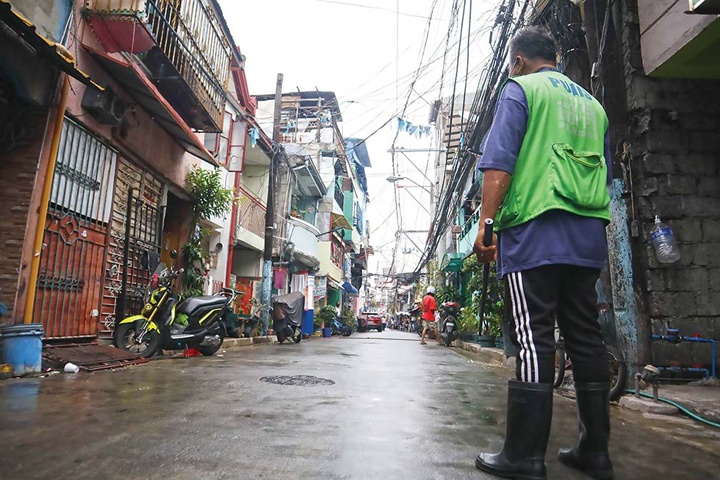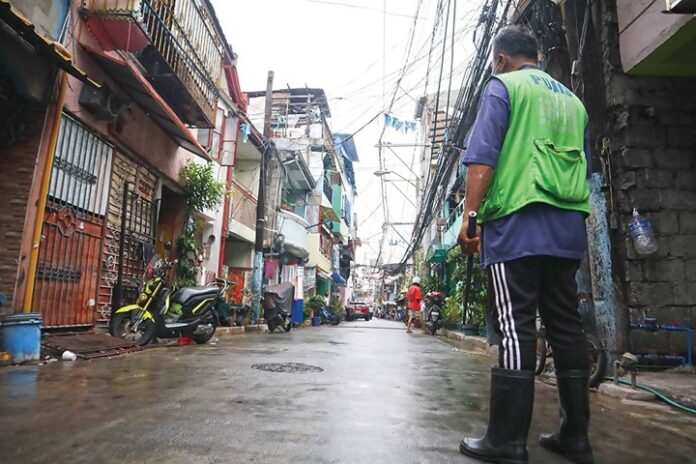
FOR the first time since 1986, the national government’s budget deficit breached past the trillion peso mark in 2020 as the Philippine economy was battered by Covid-19-induced lockdowns.
Latest Bureau of the Treasury (BTr) data showed the country’s budget deficit soaring to a new record high of P1.37 trillion, more than double the previous-high shortfall of P660.2 billion in 2019. However, the fiscal gap last year was lower than the revised full-year program of P1.82 trillion.
The Treasury said the wider fiscal gap in 2020 resulted from ramped-up state spending to cushion the impact of the pandemic despite reduced tax revenue collections.
As a percentage of GDP, the government’s full-year 2020 budget deficit also reached an unprecedented 7.63 percent, even eclipsing 5.02 percent in 2002, Finance Undersecretary and Chief Economist Gil Beltran told the BusinessMirror.
“For the NG, yes. [It’s a record-high]. As percent of GDP 7.6 percent and in absolute terms. For the consolidated public sector, no. There were higher levels in the ’80s,” Beltran said in a message to the BusinessMirror.
While the 2020 deficit-to-GDP ratio was significantly higher compared to 3.38 percent in 2019, this was lower than the 9.63 percent revised program for last year. This was also in line with the 7.6 percent of GDP deficit outlook of the Cabinet-level Development Budget Coordination Committee (DBCC) back in December.
Meanwhile, the country’s budget gap for the month of December reached P302.6 billion, up by 20.5 percent from the P251.1 billion incurred in the same month in 2019.
Deficit occurs when expenditures exceed revenues.
Full-year revenues last year slid by 8.97 percent to P2.86 trillion from P3.14 trillion in 2019, but this was 13.34 percent better than the P2.52-trillion revised program for the year.
On the other hand, total expenditures in 2020 grew by 11.31 percent to P4.23 trillion, owing to the implementation of various Covid-19 mitigation and recovery measures. However, BTr said this was still down by 2.49 percent compared to the P4.34 trillion revised full-year program as some of the economic relief measures under Bayanihan to Recover as One Act (Bayanihan II) are still ongoing.
For December alone, government revenues dropped by 1.95 percent to P238.5 billion last year compared to that of 2019.
State expenditures in the same month also stood at P541.1 billion last year, up by 9.46 percent or P46.7 billion from the equivalent period in the previous year.
Expected fiscal gap
UnionBank chief economist Ruben Carlo Asuncion told the BusinessMirror he already expected the wider fiscal gap last year since the government needed to respond somehow and still manage declining revenues because of reduced economic activity.
“It does reflect where the economy last year has gone. National government could have responded with more fiscal stimulus, but we are where we are,” Asuncion told the BusinessMirror.
While he said more fiscal stimulus would result in a much bigger deficit for the government, he thinks this may have helped hasten the recovery of the ailing economy.
“But a larger fiscal stimulus targeted for the most vulnerable like MSMEs [micro, small and medium enterprises] may have set us up for a quicker recovery like our neighbors in the region. However, I have to qualify clearly that the successful rollout of vaccines may mean more than the fiscal stimulus at this point. However, we all know that among our neighbors, we have yet to start the rollout because we are missing vaccines,” he added.
For his part, Rizal Commercial Banking Corp. (RCBC) chief economist Michael Ricafort said the country’s budget deficit-to-GDP and debt-to-GDP ratios “have been lower compared to some countries in Asean/Asia amid limited government funds allowed under the law for any additional stimulus measures.”
To temper any further widening of the budget deficit, Ricafort said the government needs to continue with its “cautious approach on any additional measures” just like last year.
“Any further measures to reopen the economy would result [in] higher tax revenue collections amid increased economic/business activities that could temper budget deficits, going forward, though offset by lower tax revenue collections with CREATE [Corporate Recovery and Tax Incentives for Enterprises] and any additional Covid programs such as for Covid-19 vaccine purchases,” he said in a message to the BusinessMirror.
For this year, the government even expects a much wider budget deficit at P1.78 trillion or 8.9 percent of GDP.
Beltran said this is because the 2021 budget included funds for vaccines and economic recovery.
“The deficit will peak this year. Then, it drops starting next year to 7.3 percent in 2022,” he told the BusinessMirror.
The DBCC expects the government’s full-year budget gap to reach P1.64 trillion in 2022.

